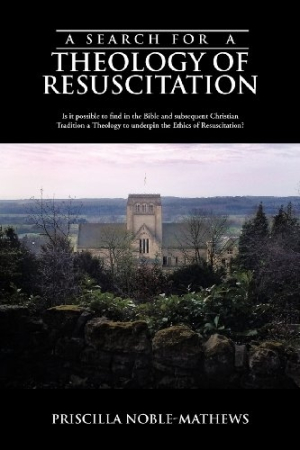A Search for a Theology of Resuscitation
In the last half century, medical procedure protocols have progressed to the point where, in the face of imminent death, “do not resuscitate” orders are common in most hospitals. In her short, insightful book, Priscilla Noble-Mathews addresses the relatively unexamined theology of resuscitation.
Her approach is straightforward. First, she examines the few instances of “raising the dead” in the Old Testament, namely the accounts in 1 Kings and 2 Kings by the prophets Elijah and Elisha. Resuscitation is viewed in the context of God as author of life, and the actual resuscitation events center around God’s breathing life into man. The author’s command of biblical history is evident in her analysis of Israelite society and the place of resuscitation in the Jewish community.
Next, she examines the occasions when Jesus raises the widow’s son at Nain (only the Gospel of Luke mentions this event) and the raising of Jairus’s daughter mentioned in the three synoptic gospels. Since these are rarely heard in contemporary liturgical readings, the entire texts are quoted. As expected, the story of Lazarus is also included. Noble-Mathews also recounts incidents described in the Acts of the Apostles: Peter raising Tabitha and Paul raising Eutychus.
Her analysis then turns toward the tradition of the church exemplified in the writings of the church fathers. Resuscitation is absent, so she concentrates on summarizing the allied theology of death and resurrection as it developed in Christian history. A short section at the end notes some remarks by contemporary Christian theologians.
Noble-Mathews’s conclusions are not unexpected. She argues that modern society, armed with medical advances, has lost sight of God as both the author of life and the determiner of death. She acknowledges that society now asserts that death may be self-determined rather than a natural culmination of life.
This book was originally submitted as a thesis for a master’s degree at the University of Wales. Minor flaws include the excessive use of the verb “posit” and the failure to include an index. The bibliography is extensive, but the title of the book by Joseph Ratzinger in footnote forty-six is incorrect.
Christian theologians will welcome Noble-Mathews’s concise examination of an issue that has received very little attention. Christian readers in general will benefit from much of the excellent commentary on scriptural events.
Reviewed by
Thomas H. Brennan
Disclosure: This article is not an endorsement, but a review. The publisher of this book provided free copies of the book and paid a small fee to have their book reviewed by a professional reviewer. Foreword Reviews and Clarion Reviews make no guarantee that the publisher will receive a positive review. Foreword Magazine, Inc. is disclosing this in accordance with the Federal Trade Commission’s 16 CFR, Part 255.

